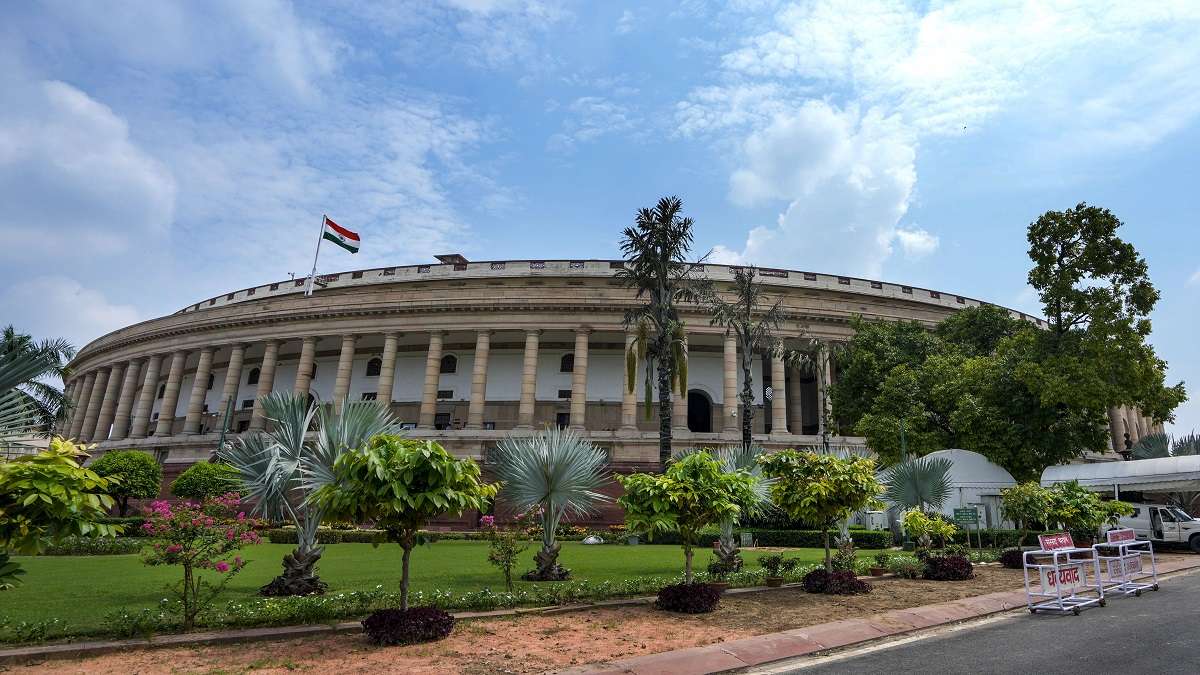The Monsoon Session of Parliament began on Thursday with the Opposition gearing up to raise several key issues to corner the Union Government. The session will have 17 sittings before culminating on August 11 this year. During the session, Prime Minister Narendra Modi-led central government has planned to table as many as 31 bills in both Houses. Among several bills, the government has also listed bills on personal data protection, the one to amend forest conservation laws and on the contentious ordinance on Delhi services for the session.
The Parliament is the supreme legislative body of the country. It is a bicameral legislature composed of the President of India and two houses: the Rajya Sabha (Upper House) and the Lok Sabha (Lowe House). The President in their role as head of the legislature has full powers to summon and prorogue either House of Parliament or to dissolve the Lok Sabha. However, the President can exercise these powers only upon the advice of the Prime Minister and the Council of Ministers.
Although there is no fixed parliamentary calendar, the session of Parliament in the country is convened by the Union Government. By convention, Parliament meets for three sessions in a year. The President summons each House of the Parliament from time to time. The gap between the two sessions of Parliament cannot exceed 6 months.
A House of Parliament meets almost every day to conduct business during a session. Typically, there are three sessions per year and a session comprises of several sittings. Summoning of Parliament refers to the procedure of convening a meeting of all members. It is the President who has the power to summon Parliament.
In general, the sessions are as follows:
- Budget session (February to May)
- Monsoon session (July to September)
- Winter session (November to December)
BILLS IN PARLIAMENT
There are four types of bills that are presented for different purposes in Parliament.
- Ordinary Bill: It is concerned with any matter other than financial subjects and it can be produced either in Lok Sabha or Rajya Sabha
- Money Bill: It is related to financial matters such as public expenditure, taxation, etc. It can only be introduced in Lok Sabha
- Financial Bill: It also deals with financial matters but is different from money bills. The Financial Bill is part of the Union Budget and contains information on all of the legal amendments required for the tax changes proposed by the Finance Minister.
- Constitutional Amendment Bill: It concerns with the amendment of provisions of the Constitution. The bill needs to be passed by a special majority by both Houses.
With the exception of a few occasions, such as the President's address and the election of the Speaker, a Parliamentary session is generally planned for six hours. However, in order to finish its business, Parliament may extend its regular business hours. There are two important key hours during a session.
Zero Hour: It is an Indian innovation and has been in existence since 1962. It is an informal device available to the members of Parliament to raise matters without any prior notice. It is a 30-minute session wherein a member is given three minutes to raise the issue. It is the time when Members of Parliament can raise issues of urgent public importanceNotably, a member is allowed to make only one Zero Hour request during a week.
Question Hour: Every parliamentary session begins with an hour set out for this. Depending on the sort of question posed, the concerned Minister must respond to the Parliament either orally or in writing. However, the Constitution of India makes no mention of Question Hour. It finds mention in the Rules of Procedure of the House.
MOTIONS IN PARLIAMENT:
Privilege Motion: A member moves a privilege motion when he believes that a minister or another member has violated the privilege of the House or one or more of its members by withholding relevant facts or by providing inaccurate or distorted information. Basically, it is concerned with the breach of parliamentary privileges by a minister. A violation of privilege is an offence punishable by the legislation of Parliament when any of these rights and immunities are violated. In accordance with the different statutes included in the Parliamentary Rule Book, a breach of privilege is considered an infraction and is subject to punishment.
Calling Attention Motion: Its notice should be given preferably on the same day on which the matter of the motion has arisen. The Procedure is that when the member is called by the Speaker, he rises in his place and calls the attention of the Minister concerned with the matter and urges him to make a statement. Members have the chance to inform the public about the shortcomings of any type of government action on a significant issue of public interest through a calling attention motion.
No-confidence motion: A government can function only when it has majority support in the Lok Sabha. When a party demonstrates its strength during a floor test, which is largely used to determine whether the executive enjoys the confidence of the legislature, the party can continue to hold power. Any member of the House may introduce a resolution of no confidence if they believe the current administration lacks a majority. If the motion is approved, the ruling party will need to certify its control of the House. The member is not required to provide justification for the no-confidence motion.
ALSO READ: Monsoon Session begins today, Opposition to corner government on Manipur; 31 new bills to be tabled

